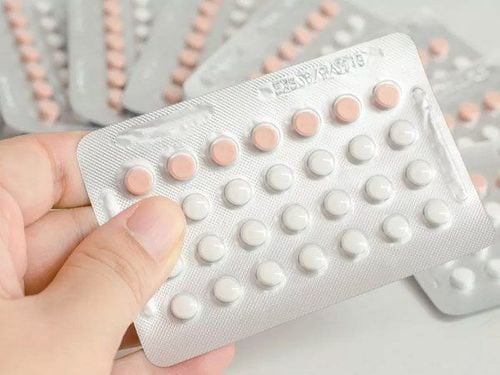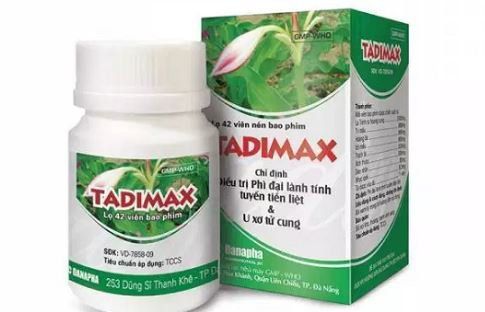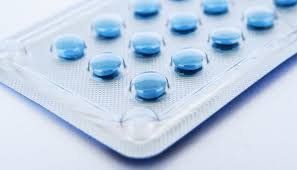This is an automatically translated article.
The article was professionally consulted with Master, Doctor Trinh Thi Thanh Huyen - Obstetrician and Gynecologist - Department of Obstetrics and Gynecology - Vinmec Hai Phong International General Hospital.The growth of uterine fibroids can affect hormones such as estrogen and progesterone. The insertion of an IUD during the period of uterine fibroids can cause many adverse effects on the health of women.
1.Learn about the IUD – a safe and economical method of contraception
The IUD is a small plastic device, usually T-shaped, that is placed inside the uterus to prevent fertilization as well as prevent the implantation of an egg. Currently, the most popular types of IUD include:Multiload IUD. Tcu 380A IUD. Hormonal IUD. IUD insertion is an advanced method of contraception and is favored by many people because of its very high contraceptive efficiency, up to 95%, and the duration of effect lasts from 3 to 5 years depending on the type of ring. However, not all cases can use this convenient solution. For patients with uterine fibroids, the insertion of an IUD needs to consider many factors.
2. Answer from the doctor: Is it okay to put an IUD on uterine fibroids?
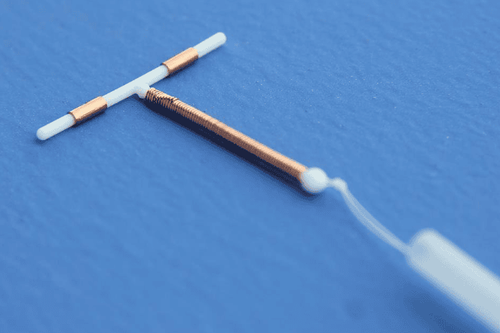
Các loại vòng tránh thai có chứa levonorgestrel có thể hỗ trợ giảm các cơn đau bụng kinh
Uterine fibroids are a disease caused by the smooth muscle of the uterus growing in size over time. Most cases of uterine fibroids are benign, causing few dangerous health complications if the patient is detected and cared for properly.
However, for large fibroids with a diameter of more than 50mm, patients may experience symptoms such as menorrhagia, abnormal vaginal bleeding, abdominal distention... which directly affects quality of life and patient's health. Accordingly, if patients with uterine fibroids want to insert an IUD as a family planning solution, doctors need to consider it on a case-by-case basis.
For cases where the uterus has not been deformed, the patient may be recommended to insert a mirena IUD. These are topical levonorgestrel-containing rings that can help with menstrual cramps, menstrual bleeding, and even, many fibroid patients who have an IUD reporting that the Their symptoms have improved significantly.
However, for patients with a deformed uterus, the placement of an IUD is not only difficult, but it can also cause damage, scratch the uterus, lead to bleeding, and increase the risk of miscarriage. Inflammation in the genital system. This not only affects the health but also reduces the fertility of women in the future.
3.Some contraceptive solutions for patients with uterine fibroids

Sử dụng bao cao su là biện pháp tránh thai hiệu quả có thể phòng tránh được các bệnh xã hội lây qua đường tình dục
In patients with uterine fibroids (where the uterus has not been deformed), in addition to placing an IUD containing the hormone mirena, the following 3 methods of contraception are also solutions recommended by doctors: Obstetrics and gynecology recommended for effectiveness and safety.
3.1. Using condoms The condom has become a very popular contraceptive method since its inception because of its effectiveness and safety for both men and women. Currently, the contraceptive results that condoms bring can be up to 98%, not affecting the hormones, women's health, but also can prevent sexually transmitted diseases such as syphilis. syphilis, gonorrhea, genital warts, HIV...
However, condom contraception also has certain disadvantages:
Condoms can be torn, slipped... during pregnancy system, causing semen to flow into the vagina. This condition usually occurs in subjects who are sexually inexperienced. May reduce sexual pleasure in both men and women. In rare cases, you may be allergic to latex. 3.2. Contraceptive implant
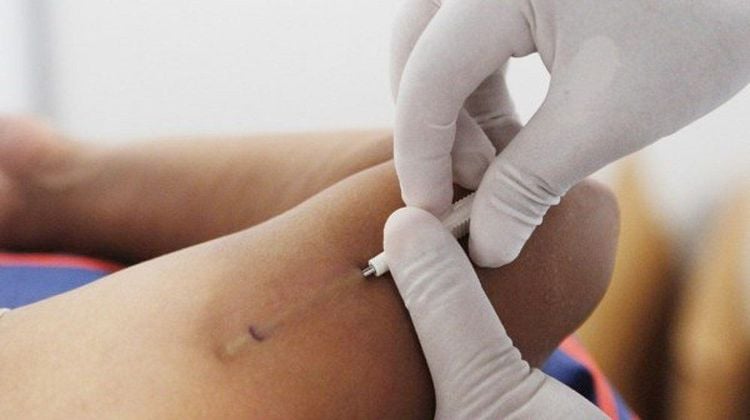
Cấy que tránh thai
The method of contraception by implant is relatively discreet, convenient and suitable for women of all ages, even those who are sensitive to estrogen, women who are breastfeeding, have uterine fibroids or other diseases.
3.3. Single-component progestin Birth control pills The birth control pill is a very simple method of birth control. These are synthetic progesterone pills and they work by inhibiting ovulation and making the cervical mucus thicker and thicker (similar to the birth control implant), making it difficult for sperm to travel to meet. eggs in the uterus.
The use of oral contraceptives is especially suitable for women who are breastfeeding, women 35 years of age or older, or cases of anemia / blood loss due to uterine fibroids.
As can be seen, whether uterine fibroids can be inserted into an IUD depends a lot on your current health status. In cases where an IUD cannot be inserted, the patient can also prevent pregnancy by other safer and more effective methods.
With many years of experience in the examination and treatment of gynecological diseases, Vinmec International General Hospital has now become one of the major health care centers, capable of examining and screening and treat many specialized diseases. Therefore, if you are confused about choosing birth control methods when you have uterine fibroids, you can take your child to Vinmec International General Hospital for examination and support and advice from doctors.
Please dial HOTLINE for more information or register for an appointment HERE. Download MyVinmec app to make appointments faster and to manage your bookings easily.





